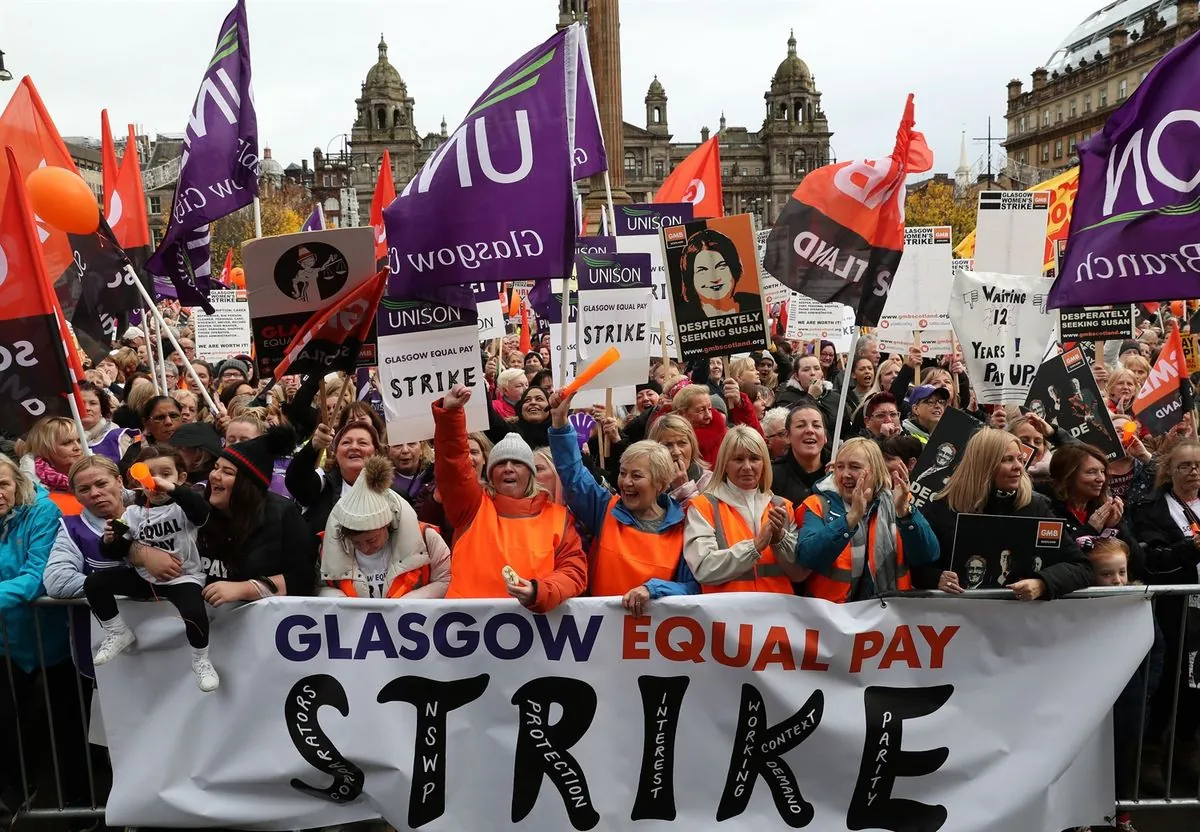Scottish Council Workers Reject Pay Rise, Strikes Loom
Unison members in Scotland have rejected a 3.6% pay increase, paving the way for potential strikes. The decision contrasts with other unions' responses and highlights ongoing public sector pay disputes.

Unison members in Scotland, including waste management and early education staff, have overwhelmingly rejected a 3.6% pay increase, setting the stage for potential industrial action. This decision comes despite the same offer being accepted by another union, highlighting the complex landscape of public sector pay negotiations.
The rejection by Unison, the UK's largest trade union with over 1.3 million members, paves the way for waste workers to initiate strikes across 13 of Scotland's 32 council areas, potentially within weeks. Additionally, the union has mandates for walkouts by education and early years staff in five local authorities.
The rejected offer included a £1,292 or 3.6% annual increase, whichever was higher. Unison argues that other parts of Scotland's public sector were offered 5.5% increases, emphasizing the disparity in pay negotiations across different sectors.

While the GMB union, which represents over 600,000 members across various sectors, accepted the 3.6% deal, Unite is expected to respond later this week. The divergent responses from different unions underscore the complexity of public sector pay negotiations in Scotland.
This rejection is not an isolated incident in the UK's public sector. Recently, drivers on the London Underground, the world's oldest underground railway network, turned down a 3.8% offer that would have increased their salaries to nearly £70,000. In England, Sir Keir Starmer proposed a 22% rise over two years for junior doctors working in the National Health Service (NHS), a move that has drawn criticism from some quarters.
The Scottish National Party (SNP) administration, which has been in power since 2007, has generally managed to avoid the industrial disputes seen in other parts of the UK by meeting union demands. For instance, Scottish teachers were recently offered a 4.27% rise, despite the current inflation rate being just 2.2%.
Unison justifies its rejection by pointing to what it claims is a 25% real-terms pay cut over the past 14 years. The union argues that council workers in Scotland are frustrated that their pay offer is not in line with other public service workers who have received 5.5% pay rises.
"Cosla and the Scottish Government need to understand the anger among council staff. They want a fair increase to stop their pay consistently falling behind, and for their wage increase to be in line with other areas of the economy. The last thing anyone wants to do is go on strike, but local government workers deserve better."
However, the Convention of Scottish Local Authorities (Cosla), which represents Scottish councils, maintains that the offer is "at the absolute limit of affordability" and expressed deep disappointment at its rejection.
The situation is further complicated by the Scottish Government's financial constraints. Shona Robison, the SNP finance secretary, is expected to outline up to £600 million in public sector cuts, with large public sector pay deals contributing to a funding crisis facing the devolved government.
As Unison prepares to decide its next steps in the coming days, the potential for strikes looms large. The union has mandates for bin strikes in various council areas, including Glasgow, Scotland's largest city, and Perth and Kinross, one of the largest council areas by land area.
This ongoing dispute highlights the challenges faced by public sector workers and governments in balancing fair compensation with budgetary constraints, a issue that continues to shape labor relations across the UK.


































